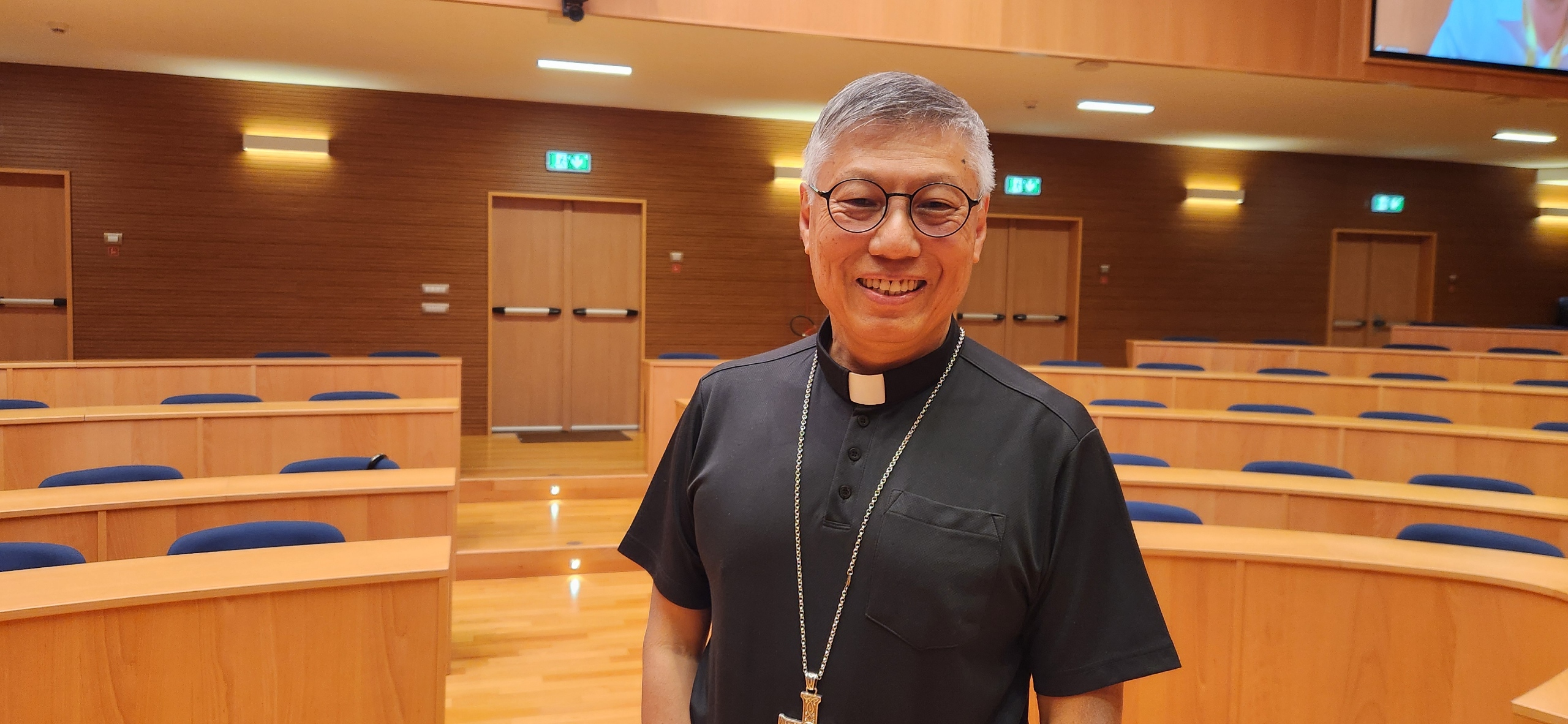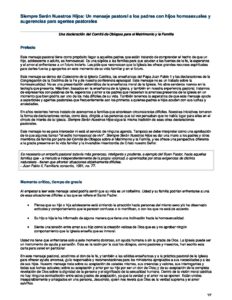If someone tells you that she only wants to be a part of your community, that she wants to stay as a member of the community and contribute whatever she has as long as she lives, what she wants from your community is to welcome anyone who sincerely wants to join, especially those coming from the social margins. Will you not listen to her? Will you reject her? What will you say to her?
I guess that unless she is absolutely obnoxious to you or appears to be a terrible liar, you will not reject her or turn down her request. You will likely listen to her. At least giving her a chance to prove her worth. Why wouldn’t you?
But will you say NO if she tells you that she is a member of the LGBTQ community? Will you reject her request without hesitation? Will you not want to listen to her? If so, why will you do that?
If we are serious about developing our church into a synodal church, listening to different social groups, including those with whom we might have a hard time identifying ourselves, is mandatory.
On Oct. 8, a fellow Jesuit invited me to attend a sharing session composed of a few individuals from the LGBTQ community. The session took place in Rome, at lunchtime, outside the Synod Assembly. Although it was not an official function of the Synod, I decided to accept the invitation since the session was about listening to my fellow Catholics, who happened to be some sexual minorities. Besides, they encountered difficulties in securing members of the hierarchy to lend them their ears.
“Listening” is said to be the first act of a synodal church. If we are serious about developing our church into a synodal church, listening to different social groups, including those with whom we might have a hard time identifying ourselves, is mandatory. Prejudices, ignorance, fears and hate actually reflect our unwillingness to engage in real listening and soul-searching, especially to those voices which are deemed erroneous or make us feel deeply uneasy.
Will these voices destabilize our beliefs or arouse our inner fears and anxieties? For one can say if I go to this listening session of the LGBTQ community, what will my friends and congregation think of me? I am not these people. I already know what they are going to say. Why waste my time over these people? I can tell them that they are simply wrong and sinful! I do not want them to mistakenly think that the church or I endorse their sinful behaviors. There are more reasons one can provide to justify one’s own decision not to engage in listening. This is really nothing new in human history or our church history.
Prejudices, ignorance, fears and hate actually reflect our unwillingness to engage in real listening and soul-searching, especially to those voices which are deemed erroneous or make us feel deeply uneasy.
But I am grateful that I attended the session and even led the opening prayer, which was an assurance that the church, which should reflect the communion and love of the Holy Trinity, cares for and loves the LGBTQ community, even though not everyone in the church does. And I am sorry to say that some Catholics even despise these sisters and brothers of ours.
What impressed me at that session were some simple messages from the panelists.
Why do you want to remain in the Catholic Church? “Because I belong.” “The Catholic Church is my family…. I am here to stay.” “I want to have my funeral in the Catholic Church.”
What do you want from the Church? “Let us join so that we can serve.” “I am just an old woman…. I only want to contribute to my community.”
What would you like to tell the delegates at the Synod? “I am a medical doctor. I took an oath when I became a doctor. I will say the same to the delegates—do no harm.” “Get to know the real people who are forced to wear a mask because of the church.”
Are these remarks and appeals too much or too threatening? I think it would depend on how one was listening. As for myself, these are simple, personal and sincere messages. Neither aggressive, provocative nor bitterly blaming the church. At least, I did not detect such tones when I was listening. In fact, I would say that the panelists were sincere and respectful towards the church, and their tones carried hope.
Connection should be an important outcome of synodality, which is required for starting healing and reconciliation among ourselves.
At the end of the session, I concluded it was a good one. It connected these sisters and brothers with us, listeners from their church. Connection should be an important outcome of synodality, which is required for starting healing and reconciliation among ourselves.
November is the month when we pray for those who had gone before us, as well as reminding us that our lives in this world are only transient. We should, therefore, seize this opportunity to repent, reconcile, heal and reconnect ourselves with love, especially with God and those longing for our loving connection. Finally, let us listen and affirm those who want to belong to our church. Hopefully, by journeying with each other as companions, we will be empowered to lead a better life than the state that we are in.
This article originally appeared in The Sunday Examiner on November 1, 2024.




